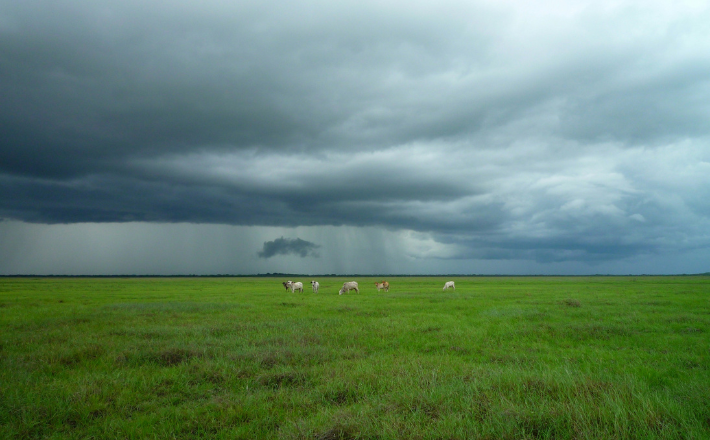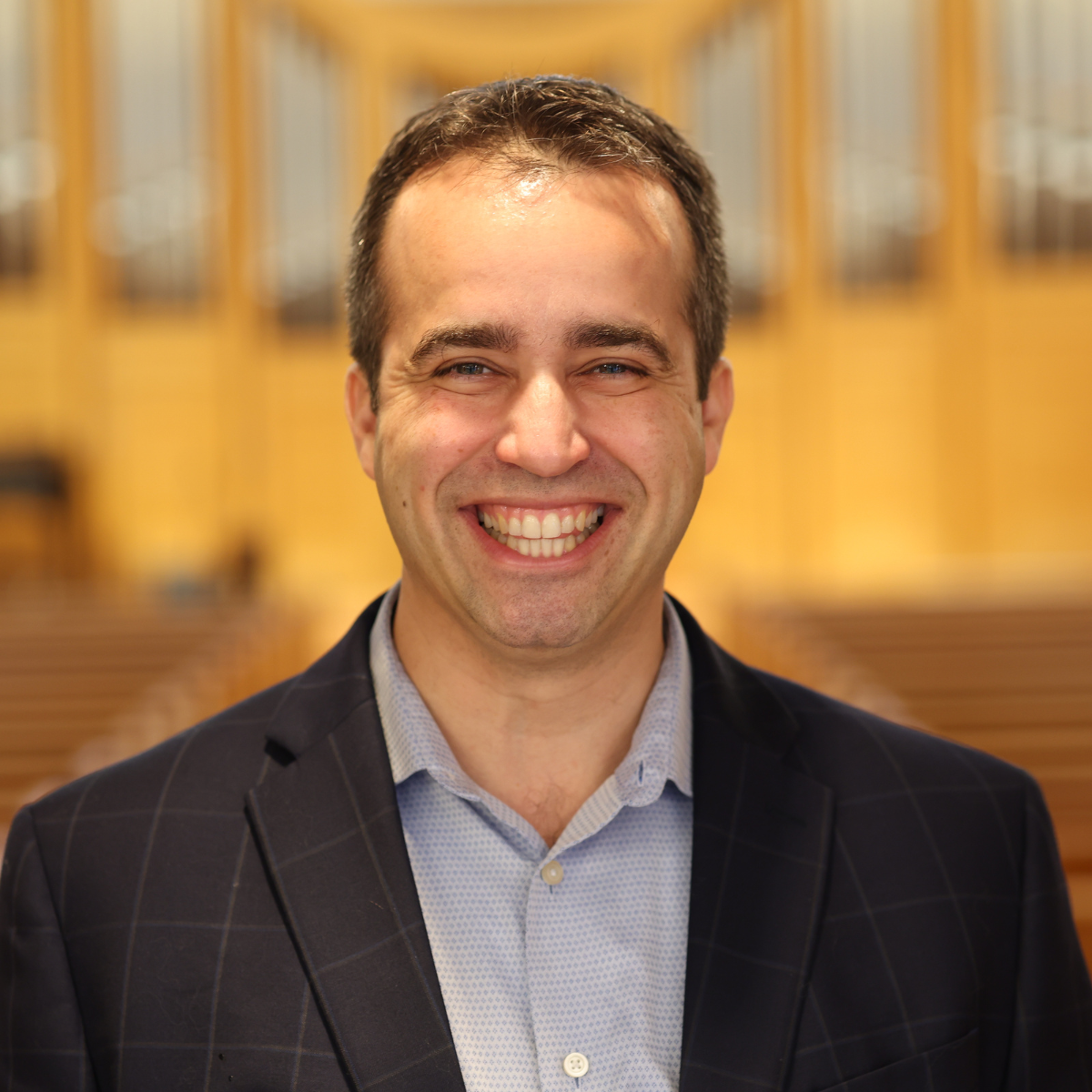Commentary on Luke 12:49-56
If a pollster walked around a major city with a film crew and asked strangers at random, “Why did Jesus come into the world?” we can presume that none of the respondents would reply, “That’s easy. Jesus came into the world to bring fire upon it and cause division in it.” If someone answered this way, the pollster might assume the person had misheard the question.
To be sure, Jesus does not hold back in Luke 12:49–53 when he speaks of fire and division on account of his coming (see also Matthew 10:34–36). He makes it sound like it is core to his mission.
Neither does he mince words in the second half of the reading, Luke 12:54–56, calling the people “hypocrites” for interpreting the weather but not being able to interpret the “present time” (verse 56). In other settings in the ancient world, the word “hypocrite” meant “actor” or “pretender.” Jesus uses the word elsewhere in Luke to talk about religious people who perform a role and play a part but misunderstand the heart of God and the spirit of the law (6:42; 12:1; 13:15). The people likely did not appreciate Jesus calling them pretenders, play-actors, frauds.
Put Luke 12:49–56 in its wider context, and the heat goes up instead of down. The chapter begins with Jesus issuing two warnings. First, avoid the “yeast of the Pharisees, which is hypocrisy” (verse 1). Second, fear God rather than human beings, for the former has the power to throw us into hell (verse 5).
In the story immediately before today’s passage, Jesus explains to the disciples that the Son of Man will come at an unexpected hour (verse 40). Using a parable to illustrate, he explains that those who are at work when the master comes will be blessed (verse 43). Much will be required and demanded from those who have been given much and entrusted with much, Jesus says (verse 48).
In the story immediately after, Jesus interacts with people in the crowd who want to know what he thinks about the Galileans whom Pilate murdered. Jesus remembers the Galileans who died, along with the 18 who died when the tower in Siloam fell on them, and he wonders aloud whether they were somehow worse sinners or offenders than “all the others living in Jerusalem” (13:4). Just like those who died, the people must face the same fate. Two times in five verses Jesus exclaims, “Unless you repent, you will all perish as they did” (verses 2, 5).
With so much heat in and around Luke 12:49–56, how can we as modern interpreters come to terms with Jesus’ stark claims that he will bring fire on the earth and cause division in it? Let us consider the latter claim first. It is one thing to say that you have come to destroy families, and another altogether to say that families will likely be destroyed on account of your coming. Jesus makes the second claim, not the first.
Division in families makes more sense when we consider who Jesus was and what he came into the world to do. Consider the most obvious source of contention. In a nuclear family, whether then or now, some conclude that Jesus is the Messiah, and others draw the opposite conclusion. Because these opposing views cannot be reconciled, division comes to a family—sometimes painful division.
A lesser point of contention can also develop, such as who gets to count as family outside the biological family. Jesus’ mother and brothers likely felt the sting of this when he left them standing outside the house in Matthew 12. Pointing to his disciples, he said they were his mother and brothers; indeed, anyone who did the Father’s will was his “brother and sister and mother” (Matthew 12:46–50). Both then and now, most family members will take offense if someone in their family refers to someone who is not “blood” as a mother or brother or sister. Again, because of Jesus, division comes to a family.
Perhaps Jesus wants us to know the truth sooner rather than later—namely, that being his disciple may mean that things get worse in our families before they get better, if they get better at all. He is like a doctor who gives us a tough diagnosis after we get a disturbing test result. It is better for the doctor to tell the patient up front that things will be hard for the foreseeable future than to lie or be intentionally ambiguous with the truth. The truth is difficult to swallow, but we can take some comfort: Jesus says it will get better someday, even if not in our families. In Mark’s gospel, he says the pain and sacrificial seed sown by those who have lost families because of him will yield a one-hundredfold harvest in this age and the age to come (Mark 10:29–31).
What about the former claim Jesus made, that he would bring fire upon the earth? Such a sharp statement would not have surprised Luke’s audience. In Luke’s account, John the Baptist declares that the one coming after him will baptize with the Spirit and fire; indeed, he will come with a winnowing fork in his hand to gather the wheat and burn the chaff (Luke 3:16–18).
Here is what might surprise us and perhaps undo us if we slow down long enough to let Jesus’ words reach us in a deeper place. The fire that Jesus wishes “were already kindled” (12:49) is a fire he will endure on our behalf. He refers this way to his imminent passion that will culminate on a cross: “I have a baptism with which to be baptized and what stress I am under until it is completed!” (verse 50).
A Christian does not have to ascribe to modern theological constructions of soteriology, like substitutionary atonement, to conclude that Jesus, who is our judge, must pass through the indignity of a mock trial and unjust judgments of state-sponsored terrorism to deliver us from death. Even the thief who hangs on the cross next to Jesus understands what has happened when he reminds the other thief, “We indeed have been condemned justly, for we are getting what we deserve for our deeds, but this man has done nothing wrong” (23:41).
The one whose presence and mission will bring fire and division to the world knows how much it will cost him to bring it, yet he decides to move forward anyhow. One could argue that it will cost him everything long before it costs us anything. It will cause him great stress and even harm but will not deter him from his mission. When faced with the choice between avoiding the fire and enduring it, he will choose to pass through it, especially because he knows that this is the best and the only way to reach us.


August 17, 2025